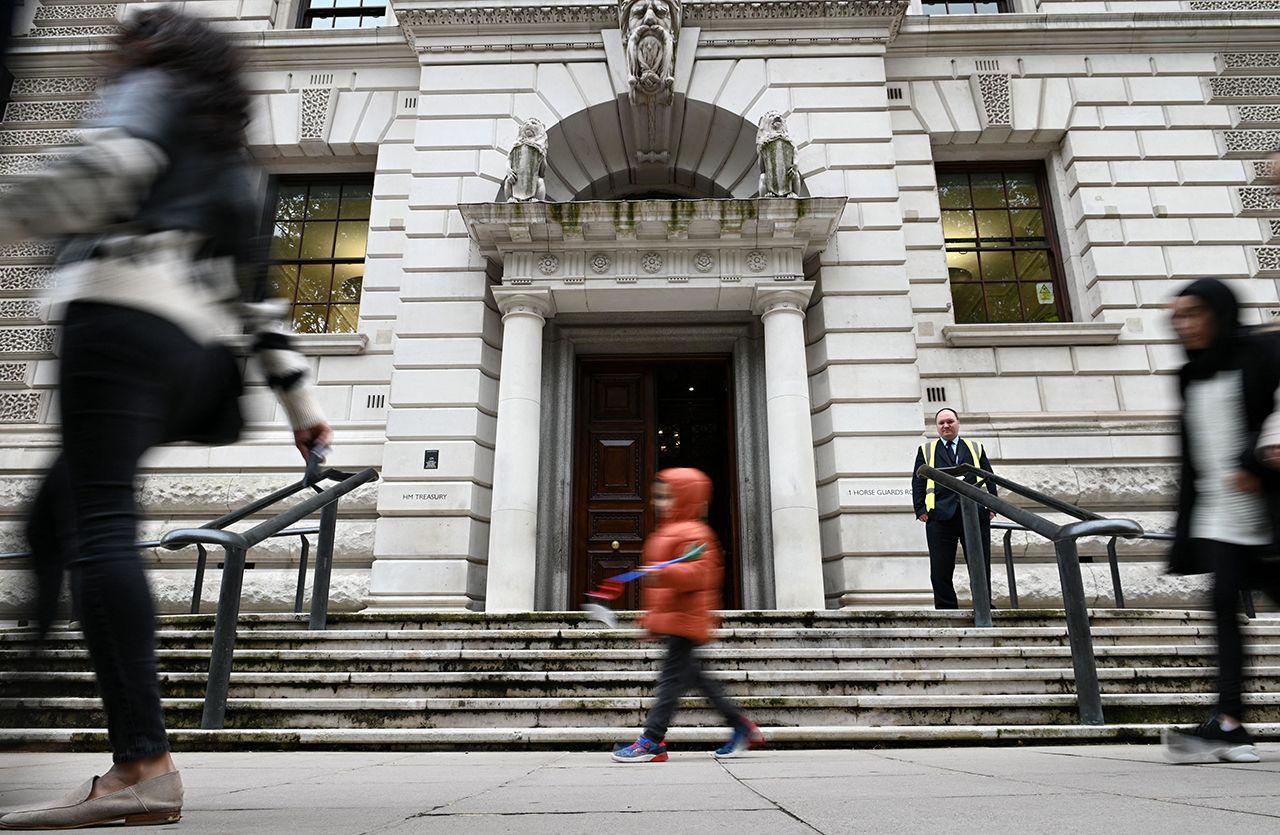Secret gifts from public swell Treasury's coffers

- Published
As Keir Starmer struggles to balance the government's books - and his staff pay bill - help is at hand: people making voluntary donations to the nation’s coffers.
Already this year, 18 people have handed over almost £620,000 without the taxman even asking for it, according to figures obtained by the BBC in a freedom of information request.
In the past two decades a total of 153 donations have been made to the Treasury, including 27 people who left money to the chancellor in their will.
It has bolstered the national accounts by £4,729,091.92 since 2003, equivalent to 0.00004% of total government spending this year.
Members of the public can make a direct bank transfer to HM Treasury to go towards public expenditure.
- Published30 October 2024
- Published18 September 2024
The Treasury stresses that “gifts cannot be ring-fenced for a specific purpose or assigned to a specific area of public spending”.
Money cannot be refunded once it is donated, and donors must confirm that the money is theirs and “not the proceeds of crime, money laundering or other illegal activity”.
In 2024, up to 4 September, there were 18 donations worth a total of £619,265.33, the highest annual total since 2020, when £1,193,875.76 was given, perhaps to support the government response to the coronavirus pandemic.
The second highest year was in 2010, when two people made donations and another five left money in their wills, worth a total of £972,621.71.
This was at a time when the incoming coalition government focused on cutting public spending to bring down the deficit.
By contrast, nothing was given in 2014 or 2015, while in 2005 just £5 was donated.
In 2013 it emerged that Joan Edwards, a retired midwife from Bristol, had left a £520,000 bequest to "whichever government is in office at the date of my death for the government in their absolute discretion to use as they may think fit".
However her solicitors at the time interpreted this as a political donation, and split the money 80:20 between the Conservatives and Liberal Democrats, who were both in government at the time.
There was a backlash after the details were published by the Electoral Commission, and the Liberal Democrats handed their £100,000 to the Treasury, and the Conservatives soon after did the same with their £420,000.